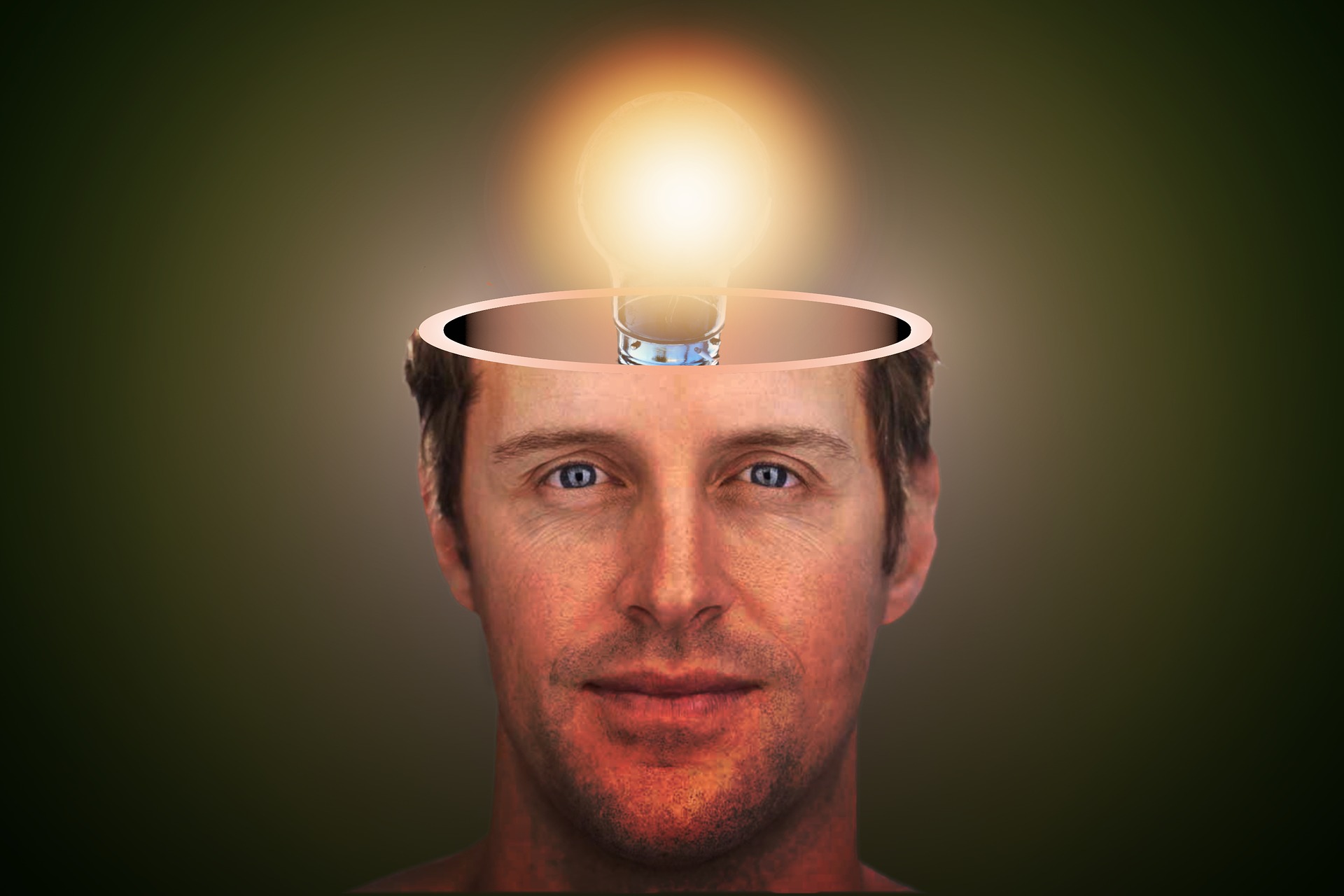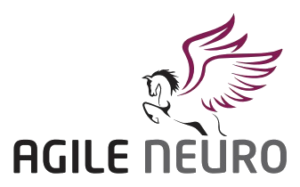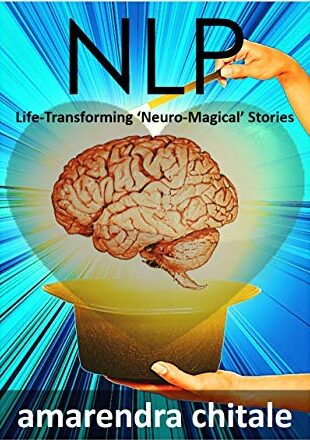
Nowadays, this is the need of the hour from every perspective, context and walk of life; being Emotionally Intelligent. It is not a coincidence that all successful people in any domain, industry or capacity seem to be emotionally and temperamentally balanced. Its not only about having talent. It is what you do with that talent because we have seen a lot of talented people not being able to make it. I account this for either lack of creative thinking/innovation or not being emotionally fit when it mattered. Perhaps both. Oh yes! I missed out one more aspect. Sense of direction, goal, mission, vision etc. Once you have your purpose and goals in place, it is just a matter of aligning yourself with all your ‘external’ and ‘internal’ resources in that direction. Visioning is a very important aspect I talk about in my speeches and trainings on Emotional Intelligence.
But first things first! What do we mean by being Emotionally Intelligent?
Emotional Intelligence is the ability, capacity and skill to identify, access, regulate and effectively communicate what you are feeling, to self and to others. It is also about understanding other people’s emotions, making sense of why and how they feel that way and dealing with them in the best possible way in the right context. Some pointers are given below to further elaborate:
- Being Self-aware and Mindful. Knowing yourself to the core and being aware of what is happening around you. Being able to understand the root-cause and prime concern of what you are feeling
- Self-management with planning and where you reach is not ‘accidental’
- Being aware of others and understanding their Personality-behavioural Inventory so that you are flexible with your communication with them and the way you conduct yourself
- Being able to manage/lead people by harnessing their strengths, dealing with their weaknesses and motivating them to the right level to get the right results. Again, by being flexible and not having the same set of rules you have for everyone.
- Having the capacity of thinking through multiple perspectives and be wise about your opinions and how you express them. This also includes being Empathetic and being in the right Ego State of Parent, Adult or Child.
- Being able to channelize and regulate emotions instead of controlling or suppressing them.
- Dealing with difficult situations by ‘placing’ yourself in the right mindset.
- Being ‘Responsive’ than ‘Reactive’ even in overwhelming situation
Today, I thought of writing about how the brain is laid out in terms of its architecture and how we tend to use it; Emotionally, Responsively or Reactively. Yes, the last point in the pointers given above is what I feel is very important professionally and also in areas of Parenting and Relationships in general. But first let us understand, why do we react? Is reacting really bad? In which context it isn’t bad? In general, how do we find the right balance? To get all these answers, let us first understand the brain.
Here is an interesting question! How many brains do we have? Okay, I’ll give you options – One, Two, Three or None. I hope none of you will say none, at least for yourself. Some of you might just keep it plain and simple – One Brain. Some of you might look at things a little more closely and say Two Brains. Which means, the left and the right and we have been hearing about this school of thought for quite some time now. The left brain is more formal, procedural or process oriented, predictable etc. The right brain is more creative and looks for innovating all the time. I would imagine, lazy people tend to use this one more because they are always looking to find easier ways to do things. There is another way of looking at 2 brains; the smaller one at the back near the spinal cord and then of course the pre-frontal cortex right in the front. For today, I will dissect this concept further and say that we have 3 brains. It is called as the Triune Brain and the architecture is given below:

Just to help you with the nomenclatures, Reptilian is the ‘Reactive’ brain, Paleomammalian is the ‘Emotional’ Brain and Neomammalian is the ‘Thinking’ Brain. Now, we have 5 senses (or probably 6) and information from these senses goes to your brain; first to the Reptilian Brain because that part of the brain is scanning the environment for any kind of danger. Then the information flows to the ‘Emotional’ Brain where Thalamus secretes chemicals of emotions which are peptides (made up of proteins) and these chemicals are flushed in the body in a matter of 6 seconds. Finally, the information reaches the ‘Thinking’ brain where there is objectivity, practicality, rationality, logic and analytics.
But coming back to the Reptilian brain (reactive brain), the main job it has at hand is to keep you safe and functioning. Which is why, Reflex-action comes from here. Reptilian Brain is also responsible for unconscious activities like breathing, digestion and learnt unconscious activities like driving, swimming etc. That is why they say, practice hard and again and again that you don’t need to think consciously about what you are doing. Learnt activity, if practised again and again becomes unconscious competence. But does this ring a bell? Being Reactive is justified when it comes to saving yourself from falling down or running when a dog is chasing you. I think it is not justified when someone cuts you on the road and that results in road-rage. It is not justified when you say-and-think, whereas you should actually think-and-say. A lot of people do this in scenarios like meetings, presentations, parenting, relationships, emails etc. Remember, your quality of communication which also includes your reactions, determines how successful you will be in life. Okay, a lot of people think that being angry is always a sign of being reactive. It is a sign of reaction if the anger is unplanned and without any intention. Anger is a reaction if the mind, the body and the actions are not each other’s ‘siblings’ in the given event. Well, emotions are action signals and being angry is an example of that. You will be angry when you want things to change, for yourself and/or for others. But that change should be defined. Things that you say when you are angry and the non-verbals that you carry should be in line with that change expected. Obviously, it also should be in line with how people would feel after the aftermath. Otherwise, it results in achieving nothing.
Interestingly, I am sure you have realized, information reaches the ‘Thinking’ Brain right at the end. While being in that passage, it first goes through the reptilian and then the emotional brain. Hence, we tend to react first, before giving ourselves an opportunity to thinking rationally and objectively. Of course, logic will tell you that we need to buy time before pulling the trigger. Easier said than done! But how do we do that? There has to be a way. In my experience as a Counsellor, Coach, Trainer etc. I have found people using different techniques that suit them. I use a few of my own. Let me list a few of them below. But you know, the important thing in all this is Self-awareness. Knowing that you are on the verge of reacting. Being Mindful of how you are feeling will help you employ any of these methods for a better response:
- Count backwards from 100 to 1 when you feel that you would be pulling the trigger and would react. It is a logical process which helps in re-starting the Thinking brain which was shut down because of Reactive brain hijacking it (Amygdala Hijack). We’ve learnt this since childhood. It doesn’t work for me anymore, but if it does for you, then Godspeed! Go for it!
- I mostly use the ‘Role-Model’ technique. Imagine what your Role-Model would do in the same situation. The important part in this is, your Role-Model should be the right one as far as the context is concerned. Like for me, I consider M S Dhoni as my role-model because he is very good in regulating his emotions. I just imagine, what he would do in such overwhelming situation that I am in and I get the answer. I do exactly as indicated in that answer. Powerful technique and works for me.
- Here is another one I like. I think 5 years down the line when I will be looking back at the same incident. What will I say to myself about what I should be doing. Again, I get some good insight.
- I know some people listen to some soothing or motivating music in their mind when they are in pressure. It helps dealing with stress like magic. Of course, we are not necessarily talking about having headphones all the time. We are all capable of internally listening to some song that we like.
- Some people ‘walk-away’ for some time, wash their face with cool water, re-gather themselves and return to the ‘ring’. Essentially, they are buying time to make the correct decisions which are not based on emotions or reactiveness.
- I know I’ve done this several times. Have an ‘Internal Dialog’ to pull myself out of emotional turbulence. Internal Dialog is motivating and more importantly, it involves language which is a code of your thoughts. And which part of the brain to you need to code your thoughts? You got it! The ‘Thinking Brain’! Quite naturally, you restart your ‘Thinking’ Brain when you are saying things to yourself.
I am sure, these are not the only techniques. You might have your own. In fact, I would encourage you to think more on this topic and conceptualize some interventions of your own. Write to me when you do so. I will be interested. And remember this one important point – Emotional Mastery is Life Mastery!









